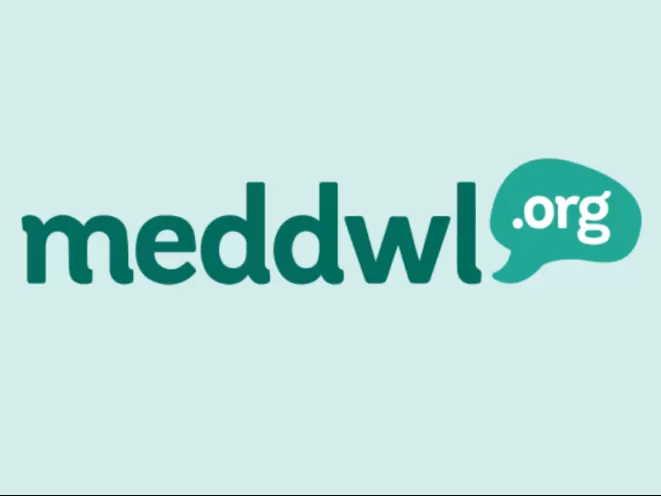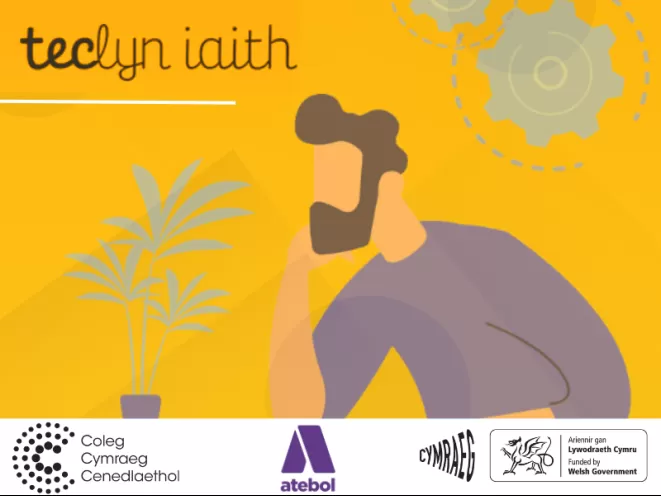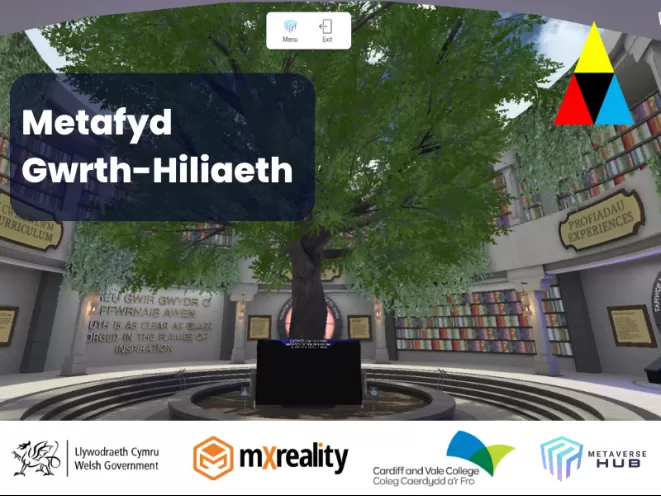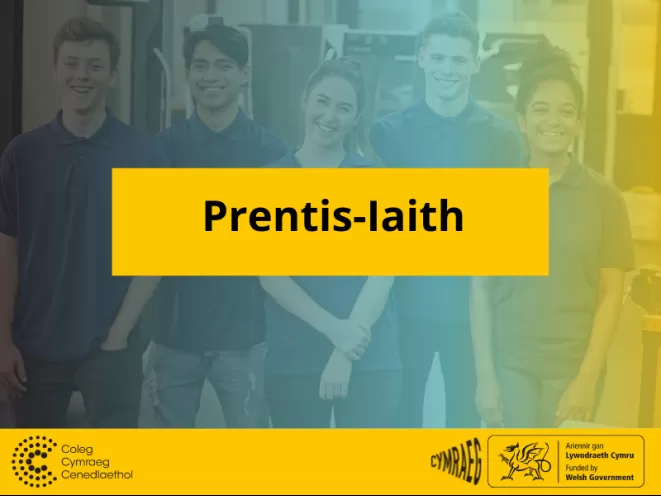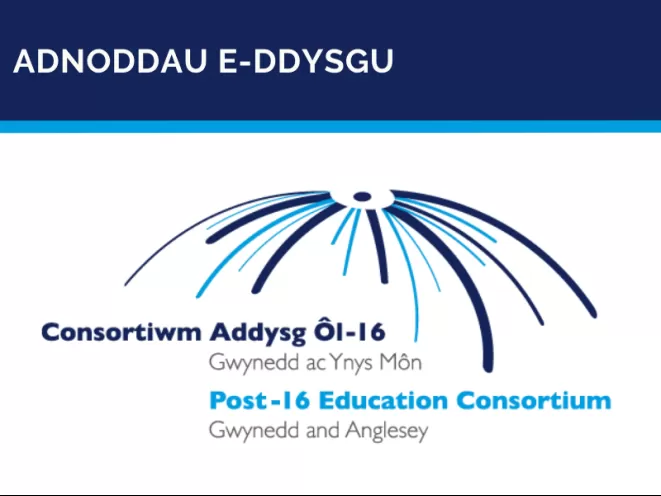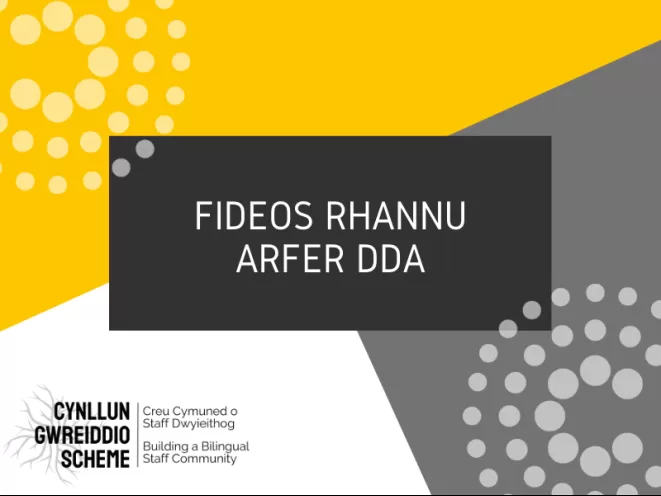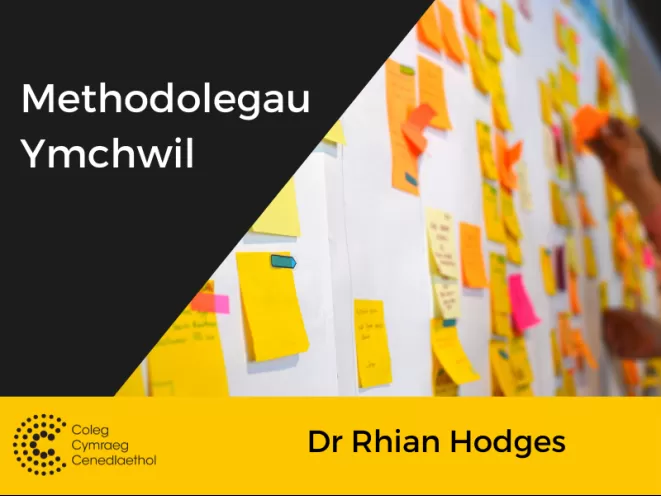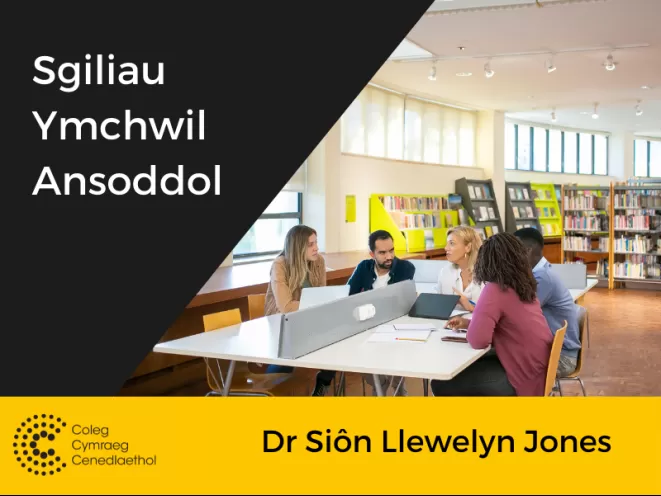The meddwl.org website was set up in November 2016, and is run by a small group of volunteers, to try to address the lack of Welsh-medium information available to help people living with a mental health condition, and their families and friends. This is the first website of its kind that contains information on mental health issues exclusively through the medium of Welsh. Everyone has mental health. meddwl.org is a place to get support and information, and to read and share mental health experiences – all through the medium of Welsh.
Meddwl.org Website
Teclyn Iaith (Welsh Toolkit)
This toolkit contains information about practical resources, programmes and apps that staff can use to improve their Welsh and to improve their learner's Welsh. The website is completely bilingual and suitable for everyone, whatever their Welsh language skills.
Welsh Government Anti-Racist Virtual World
In collaboration with mXreality, and working with teams specialising in the subject from Cardiff and Vale College, the Welsh Government has developed an immersive, accessible and expansive 3D metaworld environment, comprising of five areas relating to different themes. They look forward to sharing their experiences, stories and anecdotes with you, and you are invited to engage in an immersive learning experience, which will enhance your understanding of the world. As you explore this world, you are asked to engage with the resources and reflect on their significance. This is an opportunity for you to learn about the cultures and traditions that make up part of our shared identity. The Metaworld consists of the following sections: Experiences The Metaworld of Experiences is situated on a street of representative semi-detached houses in Wales, with access to six houses (three on each side of the street). In each of the houses, you can learn more about the background and interests of the individuals who live there by watching the video playing on the TV and by clicking on some of the interactive items (identified by a three spot icon) in the living room. Immersive Studies The Immersive Studies Metaworld consists of a main lower level area and three upper level areas. The main area has a variety of items of geometrical interest because of their shapes and patterns, which show the connection between mathematics, science and nature. You can learn more about these items by clicking on them. A QR Code is also visible on a panel near some items, which can be scanned with your mobile phone's camera to view a 3D or Augmented Reality (AR) version of the item on your device. The higher level includes: Mathematics room – allows visitors to explore the importance and history of mathematical and geometrical numbers and shapes Hair and Beauty Room – allows visitors to familiarise themselves with the history and origins of hair and beauty Inventions Room – educates visitors about some significant inventions and early contributions to contemporary life World Timeline The World Timeline Metaworld consists of a main central area and four geographic regions, all of which you can access via a tunnel from the central area. Each tunnel displays information that presents the background, identity and image of a representative individual from that region. Each of the four regions (detailed below), comprises four time periods, allowing visitors to experience architecture, images, and representational information in relation to ancient times, medieval times, early modern times, and the world today. The four regions available in this Metaworld are: Africa, Indian Subcontinent, Middle East and Northern Europe. As you move around the world timeline, in the central area and in each of the regions, interactive items you can click on link to videos that present useful additional information. QR Codes are also available in some of the regions, which can be scanned with your mobile phone's camera to view a 3D or Augmented Reality (AR) version of the item on your device. Curriculum This section allows you to engage with a wide range of carefully crafted topics in order to surmise that their plan will be anti-racist. The section consists of the following topics: Sociology Hair & Beauty Health and Social Care Black Feminism Politics Mathematics Film Studies African philosophy English for speakers of other languages Basic Education for Adults Additional Learning Needs Tutorial
Prentis-iaith
These short courses are for apprentices who are keen to develop their confidence to use their Welsh in the workplace. They enable the apprentices to complete a part of their course through the medium of Welsh. There are four different levels: Awareness, Understanding, Confidence and Fluency and there is a quiz to determine which level is suitable for you.
Post-16 Education Consortium Anglesey and Gwynedd's E-Learning Resources
A series of interactive bilingual e-learning resources on the following subjects: The benefits of studying Childcare through the medium of Welsh or Bilingually The benefits of studying Construction through the medium of Welsh or Bilingually The benefits of studying Business through the medium of Welsh or Bilingually The benefits of studying Catering through the medium of Welsh or Bilingually Resitting GCSE Mathematics Resitting GCSE Welsh Engineering Level 3 A Level Music A Level French AS Level IT
Sharing Good Practice Videos
A videos series of further education and apprenticeship providers staff sharing good practice in bilingual and Welsh-medium teaching, training, and assessment in the post-16 sector.
Research Methodologies in the Arts and Humanities
The aims of these workshops is to: To introduce the main basics of Research Methods to postgraduate students with the following objectives: trace the history and origins of theories of research methodology; introduce the core concepts of research methods; offer various techniques of qualitative and quantitative research; key steps in creating a research plan. Content: These online workshops are split into three parts covering key research method concepts and key stages in creating a research plan. Part 1 - The purpose of social research: epistemology, ontology and empirical research; Part 2 - Research perspectives, strategies and questions Part 3 - Analyzing and interpreting data. Presenter: Dr Rhian Hodges Dr Rhian Hodges has been a Senior Lecturer in Sociology and Social Policy at the School of History, Law and Social Sciences at Bangor University for over a decade. She teaches Welsh-medium modules in education, sociology, language planning, sociology of music and research methods and loves teaching a wide range of different subjects through the medium of Welsh. Her specialist area of research is language planning, and in particular new Welsh speakers, community use of the Welsh language, and Welsh-medium education as a means of revitalizing the Welsh language in Wales. Originally from Bargoed, the Rhymney Valley, she has been living in Bangor for some time now. She's used to traveling up and down the A470 to see family and friends of the valleys. These workshops will benefit postgraduate students who are planning their dissertations and theses as it offers an opportunity to consider the critical stages of the research process and how it relates to their own research.
Qualitative Research Skills
The aims of these workshops is to: Introduce different types of qualitative methods Outline what needs to be considered before, during and after qualitative research is undertaken. Consider the ethical issues associated with qualitative research Outline how to analyse and present qualitative data. Content: Workshop 1 explores the different types of qualitative methods and creative methods. Workshop 2 looks at what needs to be considered when trying to access our research participants and before conducting the research. Workshop 3 focuses on what needs to be considered during and after conducting our research and the ethical issues associated with qualitative research. Workshop 4 looks at how to analyse and present qualitative data. Presenter: Dr Siôn Llewelyn Jones Siôn is a lecturer in the School of Social Sciences, Cardiff University. He has been developing Welsh-medium provision in the School and teaches on a number of modules, including research modules. Siôn has extensive experience of carrying out qualitative research. He has worked on a number of research projects for different organisations, such as the Children’s Commissioner of Wales, Public Health Wales and the Welsh Government. In 2017, he finished his PhD. For his doctoral research, Siôn explored the aspirations of young people attending a Welsh-medium and an English-medium school in the south Wales valleys. In these research projects, he was involved in their planning as well as interviewing participants and carrying out focus groups face to face, online and on the telephone
Cronfa Cyfieithiadau'r Gymraeg
Unfortunately, Cronfa Cyfieithiadau'r Gymraeg is currently unavailable due to technical issues. We are working on a solution to get the website live as soon as possible.
The effect of recent changes on the linguistic uniqueness of Welsh
The Welsh language has several features in its grammar which are crosslinguistically very unusual. This paper looks at five such features, at their rarity in the languages of the world and at their place in Welsh grammar. It shows that the textual frequency of each feature, in corpora of spoken and written Welsh, is declining. These five features, which had been stable in Welsh since the earliest records well over a thousand years ago, have in the lifetime of older speakers become optional or obsolescent in the spoken language: the grammar of the language has changed. Welsh is likely changing because of bilingualism. Along with the recent increase in the public use of Welsh has come an increase in the use of English in the everyday lives of Welsh speakers. The average Welsh-speaker now speaks more English than Welsh, outside the family at least. Speaking a second language fluently and regularly HAS been shown to affect the speaker's first language, probably to lessen the psychological load in constantly switching between the two languages. It is argued that in such a situation cross-linguistically unusual features are inherently more susceptible to loss. Finally, the paper looks very briefly at possible future developments.
Termau Addysg Uwch
Mae'r Coleg Cymraeg Cenedlaethol yn darparu geiriadur ar-lein i fyfyrwyr a staff i hwyluso'r broses o astudio, addysgu ac ymchwilio drwy gyfrwng y Gymraeg ar lefel prifysgol. Mae'r geiriadur yn cynnwys termau technegol o ystod eang o feysydd academaidd, gan gynnwys Bioleg, Cemeg, Chwaraeon, y Gyfraith, Daearyddiaeth, Hanes, Busnes, Seicoleg, Rheoli Coetiroedd, y Diwydiannau Creadigol a Mathemateg a Ffiseg. Caiff ei ehangu'n gyson i gynnwys mwy o dermau a mwy o feysydd pwnc, ac fe nodir i ba faes y mae pob term yn perthyn. Ceir diffiniadau gyda'r termau hyn, gan gynnwys weithiau diagramau, hafaliadau a lluniau i egluro'r term yn well. Yn y diffiniadau, ceir dolenni at dermau eraill cysylltiedig.
Dictionary of Welsh Biography Website
This website contains over five thousand concise biographies of individuals who have made a significant contribution to national life, whether in Wales or more widely. An interactive Timeline of individuals in the Dictionary of Welsh Biography is now available. The timeline is powered using linked open data and openly licensed content hosted by Wikimedia.

